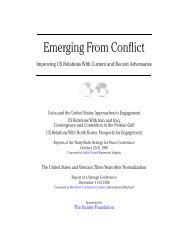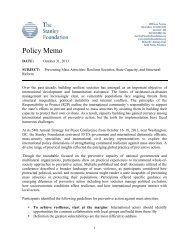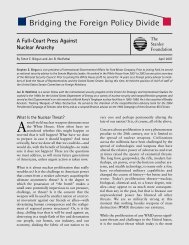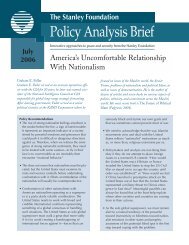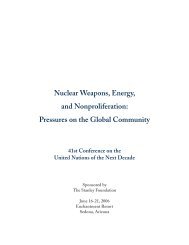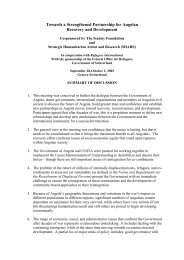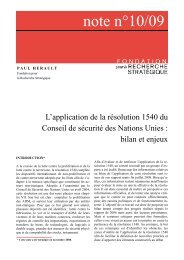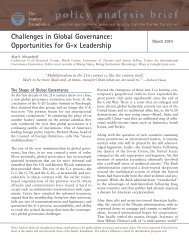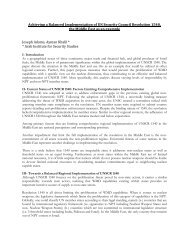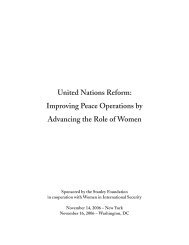444 By Susan Ariel Aaronson and David Deese With a reaction by ...
444 By Susan Ariel Aaronson and David Deese With a reaction by ...
444 By Susan Ariel Aaronson and David Deese With a reaction by ...
- No tags were found...
Create successful ePaper yourself
Turn your PDF publications into a flip-book with our unique Google optimized e-Paper software.
times justified their behavior <strong>by</strong> stating that they can’t compete with national oilcompanies which have fewer pressures for responsible stakeholdership. But sucharguments don’t eliminate their responsibility to help uphold international norms,especially in nations where governance is inadequate. Moreover, these companies haveacted in an ad hoc manner, often responding only when faced with embarrassingstakeholder protests about their behavior. They have developed industry <strong>and</strong> firm specificcodes of conduct or CSR strategies to guide their operations. However, because these adhoc strategies are voluntary <strong>and</strong> limited, the more responsible companies indeed find itdifficult to compete against state owned firms that do not shoulder the same stakeholder<strong>and</strong> shareholder pressures.In recent years, policymakers have developed initiatives such as the EITI <strong>and</strong> theVoluntary Principles, to help these companies ensure that their operations do not prop uprepressive regimes, undermine human rights; perpetuate corruption <strong>and</strong> poverty; <strong>and</strong> fuelconflict. But while BP <strong>and</strong> Shell have made significant progress in implementing thesevoluntary initiatives, the American oil <strong>and</strong> gas majors appear less committed. We do notattribute this difference between US <strong>and</strong> EU firms strictly to better management USshareholder have retained a relentless pressure on maximizing profits <strong>and</strong> shareholdervalue. Moreover, the policy environment in the United States under the BushAdministration has been less supportive of efforts to develop global climate change orhuman rights norms, compared to its European counterparts.186 However, the 3 U.S.IOCs are likely to perceive greater pressure to address climate change <strong>and</strong> invest inalternative energies <strong>and</strong> to protect human rights from an Obama administration.466



